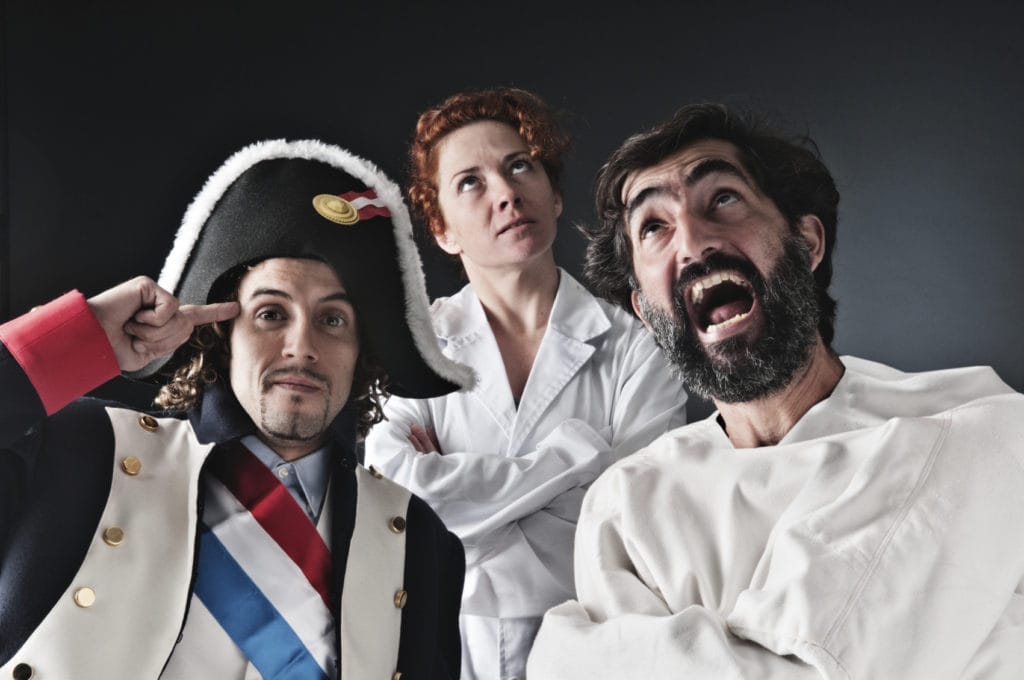Go Halloween costume shopping online and you’re sure to see them: “Gone Mental” costumes for adults and children with blood-stained tunics and straitjackets, “Asylum” wall decorations, even a 6-foot “Animated Asylum Patient” complete with “crazy” facial expression and blood-stained teeth. These costumes and props may seem like just a fun way to amp up the creepiness factor at your Halloween party, but in reality you’re sending a different and potentially harmful message, explained Paul Gionfriddo, president and CEO of the nonprofit advocacy and support group Mental Health America — that those who are struggling with mental health issues are violent and to be feared. As a result, Mental Health America is sponsoring a petition, accessible through Change.org, to encourage retailers to pull such costumes from the shelves. So far, more than 2,500 have signed the petition, including U.S. Sen. Chris Murphy, who tweeted as he added his name to the list: “Those coping w mental illness are people — not costumes or jokes. It’s time to stop reinforcing this stigma.” Before you write this off as political correctness gone amok, consider that it is common in our society for mental illness to be linked to violence, despite the fact that, “in the real world, these persons are far more likely to be assaulted by others or shot by the police than to commit violent crime themselves,” noted a 2015 study published in the American Journal of Public Health and which confirms earlier research. But the public often doesn’t get the message, and costumes and decorations such as these are not only insensitive to those who might be struggling, but play into the public’s worst misconceptions and the only too real stigma experienced by those with mental health issues. Those negative stereotypes matter, the petition explains, because half of all Americans will meet the criteria for a mental condition at some point in their lives, and the more negative the stereotypes are surrounding mental illness, the less likely they (or you) may be to reach out for help when it’s needed.
Not ‘Just’ a Halloween Costume
It’s something Gionfriddo hopes every Halloween celebrant will think about when costume-shopping this year. “Halloween has become quite an event in this country,” he said. “It’s not just for little kids but for older people who are young at heart themselves. That’s brought a lot more creativity to costuming.” Along with that creativity, he said, has come some things that “when you step back and look at them, you realize are just unfortunate and that really aren’t funny.” But that creativity also means “there’s so many other fun costumes that people can stick to, there’s really no need to go all out with these kinds of things that really promote images of those with mental health concerns as people who are violent or who need to be restrained.” Take a look at the Amazon page of the boy’s “Gone Mental” costume and you’ll see many who agree that such costumes are a cheap way to tap into offensive notions. As one person wrote in a review of the costume: “This is a cruel joke against people with mental illness. The worst part is that it’s a children’s costume. I’m raising kids who don’t make fun of people with mental illness. Do you also have a ‘cancer ward cutie’ or a ‘diabetes delight’ costume? I thought not.” And there are, of course, some reviewers on the same page who say “lighten up.” To these, Gionfriddo gives this reminder: “It’s not ‘just’ a Halloween costume. It’s a representation of a person. When you are caricaturing real people with real health issues, then you cross a line. And there’s just no need to do it. If all it is is a costume, then come up with something a little more creative.” It comes down to this, he said: “Nobody wants to take the fun out of Halloween. Let’s not take the fun out of Halloween for people with mental illnesses either.” By Kendal Patterson

